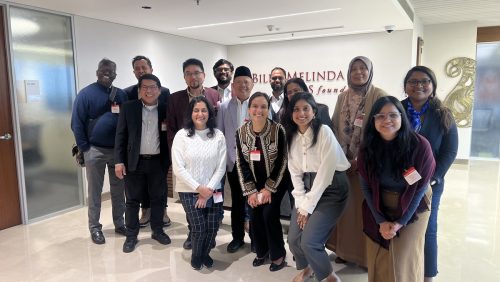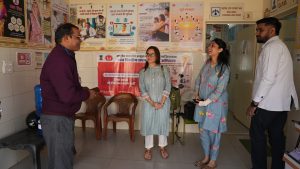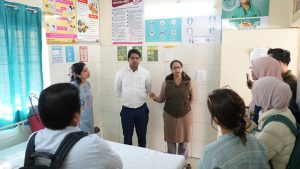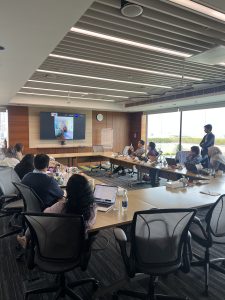
Exploring Strategies and Challenges in India's Digital Health Ecosystem
By Suruchi Gupta, Research Scientist, Department of International Health, BSPH
 In February 2025, the Center for Global Digital Health Innovation at Johns Hopkins University, represented by Dr. Smisha Agarwal and Dr. Suruchi Gupta, led a knowledge exchange on telemedicine implementation in New Delhi. The three-day program provided international delegates comprehensive exposure to India’s digital health ecosystem while generating actionable implementation strategies.
In February 2025, the Center for Global Digital Health Innovation at Johns Hopkins University, represented by Dr. Smisha Agarwal and Dr. Suruchi Gupta, led a knowledge exchange on telemedicine implementation in New Delhi. The three-day program provided international delegates comprehensive exposure to India’s digital health ecosystem while generating actionable implementation strategies.
 The exchange convened specialists from multiple organizations, including the Gates Foundation, Center for Development of Advanced Computing (Dr. Sanjay Sood), and Intelehealth (led by Johns Hopkins alumna Dr. Neha Verma). Representatives from digital health ecosystem players—eka.care, MedPho, Jhpiego, William J. Clinton Foundation, and iCliniq—shared their implementation experiences.
The exchange convened specialists from multiple organizations, including the Gates Foundation, Center for Development of Advanced Computing (Dr. Sanjay Sood), and Intelehealth (led by Johns Hopkins alumna Dr. Neha Verma). Representatives from digital health ecosystem players—eka.care, MedPho, Jhpiego, William J. Clinton Foundation, and iCliniq—shared their implementation experiences.
 Participants engaged in deep-dive sessions, learning from India’s at-scale telemedicine model, eSanjeevani, which provides over 500,000 daily consultations across diverse geographical settings. Technical demonstrations of Intelehealth’s platform highlighted the importance of user-centered design and customizable workflows for successful telemedicine implementation. The program concluded with a field visit to a Health and Wellness Center in Ghaziabad, Uttar Pradesh, where delegates observed live teleconsultations and engaged directly with Community Health Officers, ASHAs, and ANMs.
Participants engaged in deep-dive sessions, learning from India’s at-scale telemedicine model, eSanjeevani, which provides over 500,000 daily consultations across diverse geographical settings. Technical demonstrations of Intelehealth’s platform highlighted the importance of user-centered design and customizable workflows for successful telemedicine implementation. The program concluded with a field visit to a Health and Wellness Center in Ghaziabad, Uttar Pradesh, where delegates observed live teleconsultations and engaged directly with Community Health Officers, ASHAs, and ANMs.
The exchange produced concrete strategies for telemedicine implementation in lower-middle-income settings, emphasizing the importance of clinical protocols, provider readiness, quality assurance, and community engagement. This collaborative initiative demonstrates the relevance of Indian innovation and the value of academic leadership in addressing global healthcare access challenges.